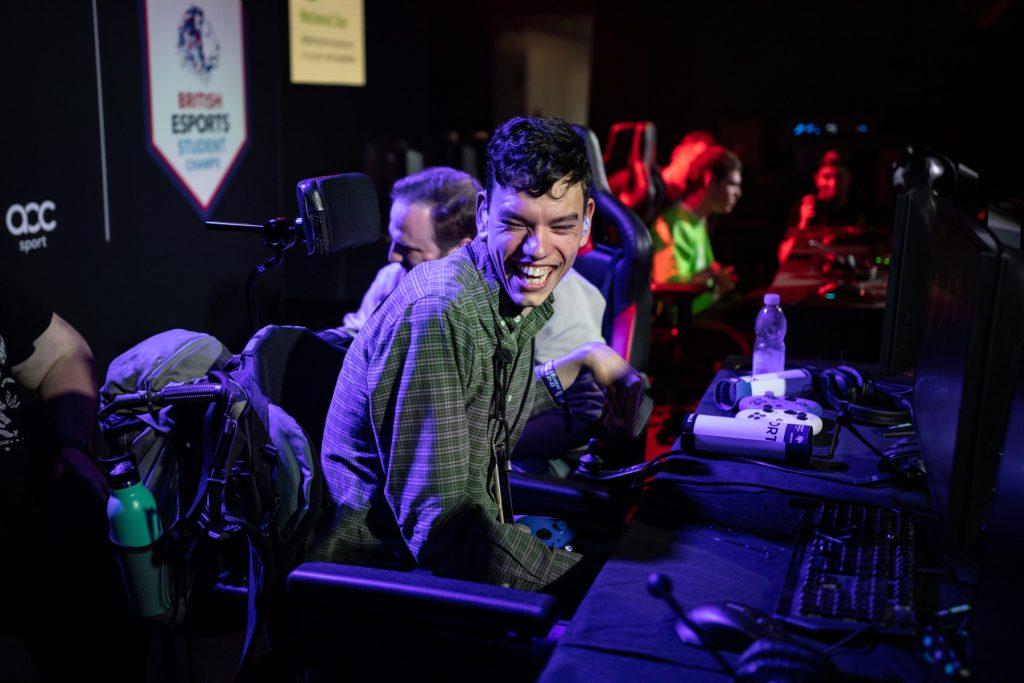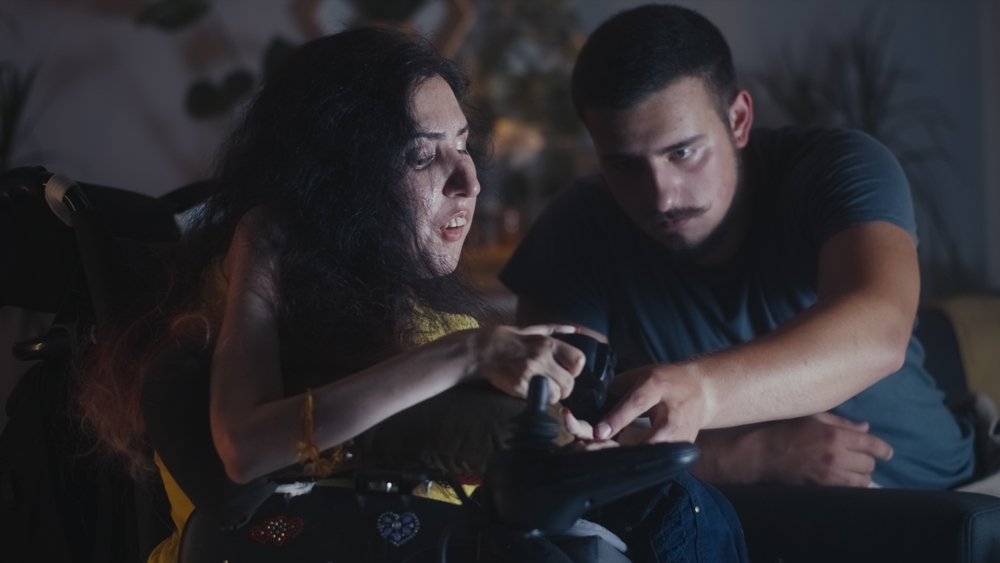
With the esports industry booming, people from all manner of backgrounds are starting to get involved in the scene. In theory, the industry presents itself as being incredibly accessible for people with disabilities due to its digital nature — but issues have arisen over the years to create significant barriers.
Bryony-Hope Green, Content Manager for UK esports body British Esports, writes for Esports Insider to break down the key pain points that present barriers for people with disabilities in esports.
Accessible venues
One of the most overlooked things in the industry is the need for fully accessible venues and arenas.
Step-free access is needed for those who cannot use stairs, and this should be available from the front door all the way through the venue. Where this is not possible, measures should be put into place to ease accessibility in these venues — for example suitable ramps, and lifts where necessary.
Additionally, making sure there are accessible toilets available is also something that often gets forgotten about, yet can really hinder the experience of a person with disabilities at a venue.
Although these accommodations may not be possible for every single esports venue, accessibility needs should be considered from the get-go to ensure guests can get where they need to be as independently as possible.
Vancouver-based advocacy group RAMP has made a handy spreadsheet for venues and events to ensure they can be as accessible as possible; which can be found here.
Rules on accessible gaming equipment
Another barrier for people with disabilities in esports is the lack of approval to use adaptive equipment in tournaments.
Last year, Microsoft estimated that there are over 400 million gamers across the world with disabilities — with some of those relying on adaptive technology to play.
In the scene at the moment, there is a general consensus that any equipment with adaptations is not allowed to be used to prevent cheating. Whilst this is a valid concern for seasoned competitors, these rules prevent those who rely on adaptive equipment from being able to take part.
Whilst these rules are gradually being overturned as more people discuss the impact this may have on players who rely on adaptive technology, they are still prominent in most major tournaments. Thus, they hinder the chance for someone to climb the competitive ladder if they are unable to compete past a certain point.
A compromise should be struck to enable everyone to compete. Investigations into individual cases, or even having a certified list of equipment that is confirmed for use in a tournament, could be a really useful way to reduce these concerns around cheating — though this may not be feasible in all circumstances.
Finding a way to allow specialised pieces of equipment in the long-term would allow for wider diversity in the range of talent competing.
Accessible online material
Furthermore, another important consideration is whether your website and online material is easily accessible.
While it’s easily overlooked, making sure your online presence is as accessible as possible allows for disabled people to consume content in the best way for them.
Easy-to-implement things to consider include:
• Subtitles on videos. Plus, ensuring they are both accurate and readable.
• Alt text (Alternative text) for images and graphics. This allows text-to-speech software to describe the image to someone who may not be able to see it.
• Easy keyboard navigation. This allows people who rely on a keyboard to navigate a website to get to each of the sections easily. A good way to test this is to see how easily you can navigate your content using the ‘TAB’ key.
• Writing in clear terms. An all-round good tip, clear and simply-laid out information enables the highest number of people to understand your content, and be able to interact with you.
Mainstream acceptance
With more people with disabilities stepping up and wanting to compete or participate in esports, the stigma around treating them differently needs to be eradicated. This can be easily fixed by giving all individuals access to the same opportunities, and proactively ensuring disability needs are met in advance.
However, this stigma transcends just the esports industry — it’s a result of elements of politics more broadly.
Alexander ‘Cristal1337’ Nathan, Founder of inclusive esports organisation Permastunned Gaming, told me on behalf of Esports Insider: “From a gaming aspect, there is increased awareness for the needs of disabled gamers, so game developers are adding more and more features to accommodate them. Regardless of how disabled you are, there is an esport for you.

“However, most governments have not yet acknowledged the value of esports, and consequently there are rules and regulations that might hinder disabled gamers from advancing their esports career.”
Nathan added that the failure to recognise and classify esports as a sport by many major esporting nations makes it difficult to fund non-profit esports organisations, including Permastunned Gaming.
He continued: “There is also a huge problem with public infrastructures, which hinder disabled people on a very practical level. How are you supposed to get to a LAN party if you are stuck at home?
“If we want to give disabled gamers a fighting chance in esports, then society needs to enable them.”
Overall, there are many ways in which the esports industry is already taking strides to make esports an accessible hobby, but there’s still plenty that needs to be done.
Esports should be accessible to all, and the industry will eventually reach that point in the future as long as there is collaboration.
Many organisations, initiatives, and charities in the esports sector already work with people with disabilities to support their presence in the industry — as well as supporting people in general. Notable trailblazers include Special Effect, Everyone Can, Permastunned Gaming, National Star in the NatSpec network, AbleGamers and Microsoft’s XBOX Adaptive Tech.
Bryony-Hope Green has produced a variety of content focused on inclusion and accessibility in esports during her time at British Esports.

